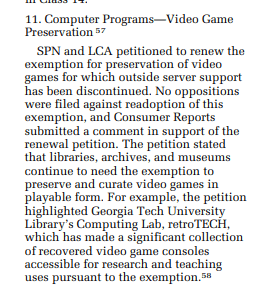When you got your feet into the emulation world, you must find topics or statements regarding ROMs and/or dumping ROMs. The same question “Is ROM dumping legal?”, or “Is ROM legal?” will be asked and repeated every now and then. But why? It is not because people are lazy or incapable of searching Internet, the fact that people are avoiding answer the question directly. So, today I will stop being lazy and try to answer this question as best I can. Let’s see if my answer is any different from others.
What are ROMs?
ROMs, or ROM files (images), are computer files which contains a copy of the data from a read-only memory (ROM) chip, often from a video game cartridge, or used to contain a computer’s firmware, or from an arcade game’s main board.
So the question is easy to answer, and I shamelessly copy the definition into my article, and I know that it is just paraphrasing for other websites. Thanks, captain Obvious.
Is ROM dumping legal?
ROM dumping is perfectly legal if you keep the dumps to yourself, however sharing these dumps is piracy and is illegal.
Can you answer this question easily as stated above, and stay in good conscience? TLDR version is below.
First, we should hear from Nintendo, a company which clearly doesn’t approve anything that can relate to piracy:
You may be thinking of the backup/archival exception under the U.S. Copyright Act. There is some misinformation on the Internet regarding this backup/archival exception. This is a very narrow limitation that extends to computer software. Video games are comprised of numerous types of copyrighted works and should not be categorized as software only. Therefore, provisions that pertain to backup copies would not apply to copyrighted video game works and specifically ROM downloads, that are typically unauthorized and infringing.
In short, Nintendo doesn’t approve the action of ROM dumping, which is a right move in their position. However, in their answer regarding ROM dumping, they don’t forget to mention “backup/archival exception under the U.S. Copyright Act”. What is it, you may think? Let’s head to the U.S. Copyright website:
Can I backup my computer software?
Yes, under certain conditions as provided by section 117 of the Copyright Act. Although the precise term used under section 117 is “archival” copy, not “backup” copy, these terms today are used interchangeably. This privilege extends only to computer programs and not to other types of works. Under section 117, you or someone you authorize may make a copy of an original computer program if the new copy is being made for archival (i.e., backup) purposes only; you are the legal owner of the copy; and any copy made for archival purposes is either destroyed, or transferred with the original copy, once the original copy is sold, given away, or otherwise transferred.
You are not permitted under section 117 to make a backup copy of other material on a computer’s hard drive, such as other copyrighted works that have been downloaded (e.g., music, films).
However, right at the Copyright Act, it states clearly that
It is also important to check the terms of sale or license agreement of the original copy of software in case any special conditions have been put in place by the copyright owner that might affect your ability or right under section 117 to make a backup copy. There is no other provision in the Copyright Act that specifically authorizes the making of backup copies of works other than computer programs even if those works are distributed as digital copies.
So, I must say that under U.S law, you can make an archival copy of your game, providing that it isn’t digital. However, by dumping ROM, you’re doing exactly against Nintendo’s claim, and if it breaks license agreement, it may affect your ability or right under section 117 to make a backup copy.
Actually, there was a case that Nintendo sues a man for violating Nintendo copyright. In the end, Nintendo has failed to show any harm to the present market for its copyrighted games and has failed to establish the reasonable likelihood of a potential market for slightly altered versions of the games at suit. The court concluded that the action to improve the copyrighted games is fair use.
At the moment, most modern games are protected by DRM (digital rights management). By dumping ROM, you are affecting the copyprotection, as a result, it is a violation of the DMCA. How about retro games? Luckily, there is an exemption that abandoned games without Internet connection requirement should be preserved. The Copyright Office considers it as “fair use” and rejects argument that this will hurt sales.

TLDR: Under U.S law, as long as you own retro video games (which are no longer supported) physically, and you dump ROM images without alternating cartridges, to emulate for “fair use”, it is legal.
Most importantly, I’m not a lawyer.
